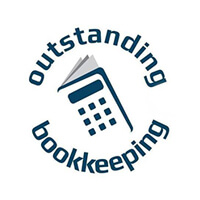Less time doing bookkeeping means more time running your business
When do you need a bookkeeper?
These are some of the signs you should look for when deciding to hire a bookkeeper:
- Doing the books is taking you away from working on your business.
- The business transactions have substantially increased since you first started.
- You’re not sure that records are being kept correctly.
- Your tax and/or other compliance is getting complicated.
- Your accountant is doing bookkeeping duties and charging accountant fees.
Benefits of using a bookkeeper
Using a bookkeeper should be seen as an investment in your business. There are many benefits to bookkeeping services and here are some for you to consider.
Saving money
Although many small business owners think this is an unnecessary expense, most small business owners don’t have the necessary skills to understand how to prepare meaningful financial reports – and spend more time trying to understand how to keep the financial records.
Think about it this way – you wouldn’t attempt to do an electrical job if you weren’t qualified – it’s the same for keeping good financial records.
Saving time
Time is one of the things that all small business owners need more of. Engaging a bookkeeper frees up valuable time for you to work on other areas of your business.
Accurate record keeping
It’s the bookkeeper’s job to keep accurate records – and considering this will be their primary role – it’s more likely your records will be kept up-to-date and accurate.
Confidence and compliance
A good bookkeeper will:
- understand the compliance requirements of your business
- ensure compliance requirements are recorded correctly and lodged appropriately
- be up-to- date with the most effective and efficient accounting software and systems available
- provide improved business reporting to assist in decision making.
Get the best bookkeeper for your needsExternal link (opens in same window)
Questions to ask a bookkeeper
It’s important to get the right bookkeeper for your business.
If they have good experience in businesses similar to yours, they’ll be able to provide information that meets your compliance requirements (e.g. BAS), as well as information to improve the overall performance of your business.
Here are some questions that can help you decide on choosing the right bookkeeper:
What are your qualifications?
Your bookkeeper should have a bookkeeping qualification. If you intend to use them to prepare your Business Activity Statement, they’ll also need to be either a registered BAS agent or tax agent.
What bookkeeping association are you a member of?
Ensure your bookkeeper is a member of a bookkeeping association – if they are, they’ll be keeping up-to-date with any accounting, bookkeeping, tax or other changes that may impact on your business.
How long has the bookkeeping practice been operating, and how long have you been with the practice?
Find out how much experience they have, and if the practice is mature enough to manage your needs.
What kind of clients do you see, and what services do you provide?
Find out if they have clients like you, and experience in the services you need. Ask to speak with a current client to check if they’re happy with the service provided.
What range of services do you provide?
Many bookkeepers also provide technology assistance, such as help in setting up point of sale (POS) systems, or software to scan invoices and receipts directly into your accounting system.
What is the size of the bookkeeping practice?
Find out how many work at the practice, because if your bookkeeper is ill, you’ll want to ensure that someone else can come in and undertake the necessary duties.
How will your practice help me develop my business?
Good bookkeepers can assist with a range of ways to improve the overall performance of your business, such as setting and monitoring budgets or key performance indicators.
Are you familiar with the accounting software package I use in my business?
Your bookkeeper must know how to use your accounting software.
What rates do you charge and how will I be billed?
What is the basis on which fees are charged, and will they bill you monthly or annually?
Will I save on my accounting fees if I use you?
Using a bookkeeper means you should have significant savings on your accounting fees.
I free business owners time so that they can fulfill their goals and dreams and provide them with accurate and timely information so they can make informed business decisions.
Email: [email protected] Telephone: 0412 334366


 I free business owners time so that they can fulfill their goals and dreams and provide them with accurate and timely information so they can make informed business decisions.
Email:
I free business owners time so that they can fulfill their goals and dreams and provide them with accurate and timely information so they can make informed business decisions.
Email: